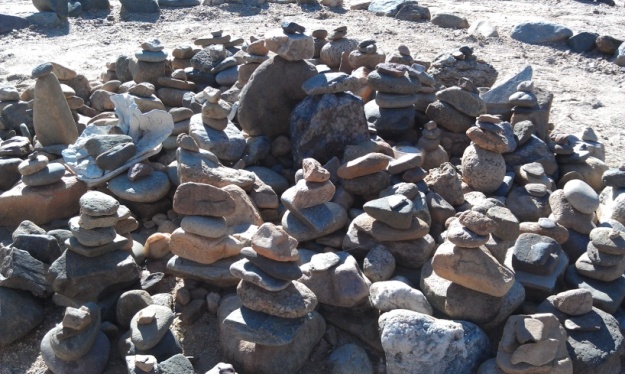 I recently had the opportunity to walk a labyrinth several days in a row. On the last day, I was honored to accompany a leader through the experience for the first time. In preparation, we looked out onto the horizon, took a deep breath, and set an intention that would help keep a slow, deliberate pace. This woman was seeking new ways in which to lead and live, having burned out and experienced the ravages of chronic work stress on her mind and body.
I recently had the opportunity to walk a labyrinth several days in a row. On the last day, I was honored to accompany a leader through the experience for the first time. In preparation, we looked out onto the horizon, took a deep breath, and set an intention that would help keep a slow, deliberate pace. This woman was seeking new ways in which to lead and live, having burned out and experienced the ravages of chronic work stress on her mind and body.
According to Wikipedia, “labyrinths can be thought of as symbolic forms of pilgrimage; people can walk the path, ascending toward salvation or enlightenment.” Many people could not afford to travel to holy sites and lands, so labyrinths and prayer substituted for such travel. Later, the religious significance of labyrinths faded, and they served primarily for entertainment, though recently their spiritual aspect has seen a resurgence.
 Many newly made labyrinths exist today; they are used by modern mystics to help achieve a contemplative state.
Many newly made labyrinths exist today; they are used by modern mystics to help achieve a contemplative state.
“Walking among the turnings, one loses track of direction and of the outside world, and thus quiets the mind.”
I share some observations:
1) Although the way in and the way out may be along the same path, no two journeys are alike.
2) Rushing may get you to the center faster if you don’t mind missing the miracles happening along the way.
3) Some of my best ideas come when I am in nature and away from technology.
4) Messages are around us all the time, if we only pay attention.
5) Leave your own unique mark when you reach the goal!
Many people marked the center with rocks in the shape of cairns, to symbolize their completion of a unique journey, joining a community of others who had done the same thing before them.
-
Are you aware of how you enter and exit? A place? A problem? A conversation?
-
What happens when you slow your pace? Are your results different? How so?
-
When was the last time you tried to solve a complex problem by walking in nature?
-
What do you pay most attention to?
-
What kind of footprint are you leaving when you finish the job?
If this causes you to think differently, let us know. For more information, we invite you to join our Step Up Leader community of learning leaders!


